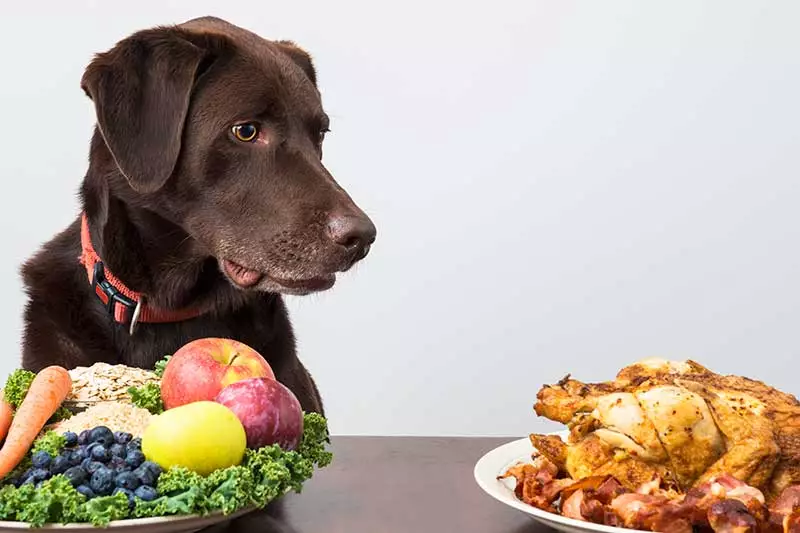
Food is a touchy subject for many people, and decisions about what to eat can be deeply personal. The choice to go vegan is no exception. The popularity of this diet has skyrocketed in recent years, with various celebrities, scientists, and food experts promoting it as the ideal option.
Proponents of veganism generally cite a concern over animal welfare and a desire for more vibrant health as the main reasons to choose a plant-based diet. This can lead to a real dilemma when it comes to buying commercial dog food with meat. It’s no surprise that many vegan dog owners are contemplating (or have already made the switch to) meat-free diets for their pets – but is it really safe for dogs to go vegan?
Can Dogs Go Vegan?
The short answer is – yes. Although they’re classified under the order Carnivora, dogs have evolved to become omnivores. For example, in India and other countries where meat generally isn’t eaten, homeless dogs can survive on scraps they find in the street. However, just because these animals are capable of living a vegan lifestyle doesn’t mean they should. To date, no long-term studies have been conducted about the effects of a vegan diet on dogs.
Surviving or Thriving?
Dogs have a much higher protein requirement than humans, making it difficult to meet this need without animal products. A vegan diet can also lead to deficiencies in certain amino acids, as well as key vitamins and minerals, such as B vitamin, calcium, phosphorus, and iron, all of which can be obtained either exclusively or mostly through animal products. Over time, these deficiencies can lead to significant health problems.
Special Cases
Certain conditions may be relieved by reducing or eliminating meat and animal byproducts from a pet’s diet for a set period of time. For example, veterinarians may prescribe a specially formulated pet food that uses alternative protein sources (such as soy) to diagnose or treat food allergies, bladder stones, or liver disease.
Proceed with Caution
Deciding to have your dog go vegan or vegetarian is a major decision, and one that requires a good deal of research and preparation.
- Talk with your veterinarian before making any changes. We can help you decide which vegan diet plan is right for your pet, as well as make recommendations for supplements and additional safeguards.
- More frequent wellness exams and diagnostic testing may be needed in order to ensure your pet remains as healthy as possible.
- If you plan on feeding your pet a commercial vegan diet, make sure it meets the requirements of the AAFCO (Association of American Feed Control Officials).
- Vegan or vegetarian diets are not appropriate for puppies or pregnant or nursing adult dogs. They’re never recommended for cats.
When it comes to figuring out whether it’s safe for dogs to go vegan, there are clearly plenty of factors to consider. Please don’t hesitate to contact the team at Schertz Animal Hospital for more information.
Recent Posts
About Us
We know that choosing the right veterinarian for your pet (and you) can be a challenge. Yet, with our stress-free handling, our long-term, experienced staff, and a state-of-the-art facility, we make the decision an easy one!
